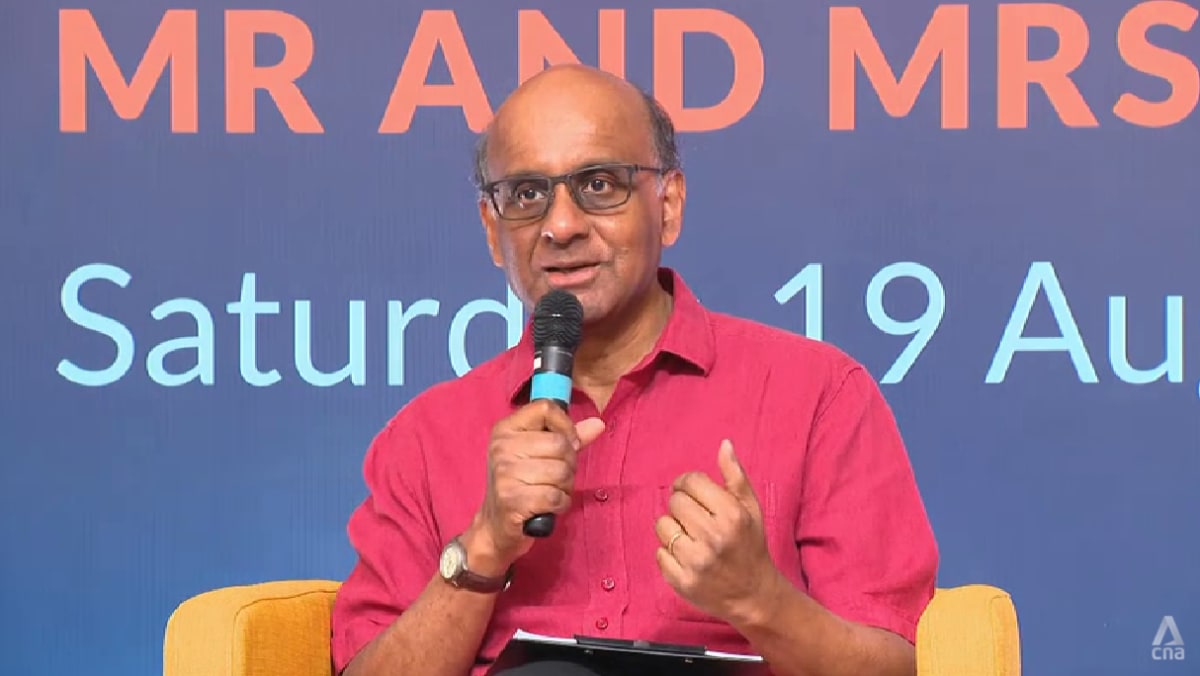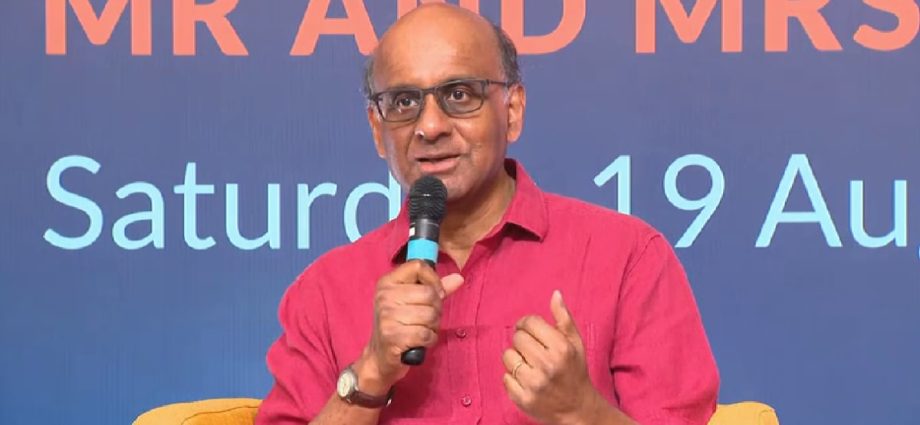
SINGAPORE: The role of the President is important in bringing people together in a more contested and uncertain environment, Mr Tharman Shanmugaratnam said on Saturday (Aug 19).
The presidential hopeful and former Senior Minister said that the role of the President in a more diverse environment – where people have multiple views – becomes more important and not just in a symbolic way.
The role of the President is also important as he supports initiatives on the ground which bring people together, reduce differences and create a sense of solidarity, he added, noting that this is something he has done for many years.
“I have made that a major plank, not just for the sake of a presidential campaign, but it’s been my purpose for many years, and I’ve been working on the ground for many years on this, in Jurong as well as outside Jurong,” said Mr Tharman, who was Member of Parliament for Jurong for 22 years.
“How do you bring people together? How do you uplift lives in a way that just isn’t about individuals, but is about collective resilience?
“And I believe that that active role of the President in supporting ground-up initiatives, by civil society and other voluntary groups, can be much more important in future.”
Mr Tharman and his wife Jane Yumiko Ittogi were speaking at a youth dialogue session attended by around 300 people including youth leaders and community activists.
Held at the hotel YWCA Fort Canning, the event saw Mr and Mrs Tharman fielding questions about social issues, such as social mobility, climate change and mental health.
Elaborating on the role of the President on the international stage, Mr Tharman said Singapore cannot underestimate changes that are occurring internationally.
“We cannot underestimate how much of a loss it will be to Singapore if we’re treated as just a small country. We’ve held our own, actually it started with Mr Lee Kuan Yew’s days, we’ve held our own, but it’s going to get very difficult in future because of the tensions between the US and China and the gradual unravelling of all the norms of multilateralism that held the world together for 40 years. It’s going to be a dangerous world,” he said.
Noting that the presidency is a very important institution, Mr Tharman said: “The traditional role of the presidency becomes more important if the person occupying the office has that background experience and international standing to be able to fly the Singapore flag high, and not just fly the Singapore flag high, but also project the Singapore voice of reason, in international debate and collaboration.”
The dialogue comes a day after Mr Tharman received his certificate of eligibility from the Presidential Elections Committee, qualifying him as a candidate for this year’s Presidential Election.
Two other contenders for the presidency also received certificates of eligibility on Friday: Former GIC chief investment officer Ng Kok Song and former NTUC Income CEO Tan Kin Lian, both of whom also appeared in public events on Saturday.
In the run up to Nomination Day on Aug 22, Mr Tharman has stressed that he intends to serve as President for a challenging new era, echoing the message from when he launched his formal bid for presidency.
During the Jul 26 press conference, Mr Tharman expressed his hope to “deepen the culture of respect” in Singapore to create a more inclusive society.
During Saturday’s question-and-answer segment, which lasted a little more than an hour, Mr Tharman was also asked about second chances and the death penalty.
A participant asked if Mr Tharman would bring his belief in giving people “second, third and fourth chances” into the Istana on issues such as drug offenders who are on death row.
Mr Tharman replied that the death penalty issue was a “specific one”.
“It is explicit in the Constitution that the President does not have any discretionary power. I have my views on it, I might communicate my views to the Prime Minister in private et cetera, but let’s stick by the Constitution,” he said.
“This is an issue, if it’s a political issue, take it up politically, it is not an issue for the presidency and I don’t intend to weaken that constitutional framework on what the President gets involved in, and what the President doesn’t get involved in, separate from private communications and the like. But I want to say that I’m talking as someone who’s spent a lot of time with ex-inmates and will continue to.”

